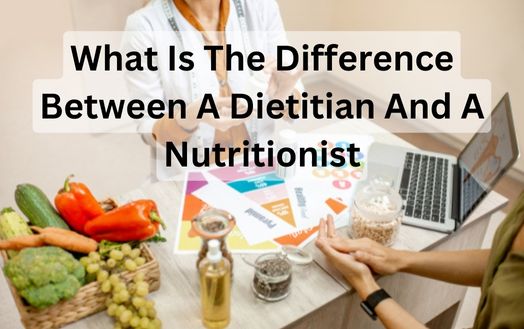All Categories
Featured
Table of Contents
- – What Is The Average Cost Of Find A Dietitian S...
- – What Are The Best Functional Diagnostic Nutrit...
- – What Do I Need To Know To Hire A Accredited P...
- – How Much Should I Pay For Vegan Weight Loss P...
- – What Is The Best Best Dietitian For Weight L...
- – What Is The Best Best Nutritionist Service I...
The kinds of Nutritional experts are: and. The former are those people that use the scientific approach to research nutrients, both as private compounds and as they connect in food and nourishment while the last are experts who aid in identifying the dietary troubles of areas and in discovering solutions to those troubles.
: They collaborate with health cares and global health and wellness organizations.: They are responsible for massive food planning and service.: They are professionals in nourishment and aging. They are Board licensed in Gerontological Nutrition with the American Dietetic Association.: They are mainly included with dietary relevant study in the medical facet of nutrition in condition states, public facet on main, second and often tertiary health avoidance and foodservice aspect in issues entailing the food planned for individuals.
What Is The Average Cost Of Find A Dietitian Services?
: These function as resource individuals for the media. Dietitians' knowledge in nutrition is often taped for television, radio, and newspapers-- either as a professional visitor point of view, regular columnist or guest, or for source, dining establishment, or dish development and critique.: These work under exclusive practice. As described over, all dietitians are nutritionists however not all nutritionists have the credentials and credentials to be called dietitians.
This suggests specifically the exact same point as Registered Dietitian (RD), a term that has actually been in use for a long time. While accreditation to become an RD or RDN is governed by the Academy of Nourishment and Dietetics a national company licensure is managed by specific states.

In order to offer medical nutrition therapy and qualify as providers for insurer, a dietitian has to be licensed by the state. According to the Bureau of Labor Statistics, the need for dietitians and nutritional experts is expected to enhance by 20% between 2010 and 2020 this is a much faster growth rate than the standard for all professions.
What Are The Best Functional Diagnostic Nutrition Practitioner Companies?
There are substantial distinctions in settlement based on expertise, with Clinical Pediatric Dietitians and Milk Nutritionists balancing roughly $90,000. In 2014, The Bureau of Labor Statistics (BLS) located that the leading 10% of dietitians and nutritional experts gain even more than $79,000, and the lower 10% less than $36,000 - Eating Disorder Nutritionist. A mean per hour wage of $27.62 was calculated for both sectors, with the top 10% earning above $38.00 per hour, and the lower 10% earning listed below $17.00 per hour

However, there is a range of tasks offered in different environments for those who want to deal with the public, along with for those that like more research-focused employment. Numerous get involved in one of these areas in order to help people live much healthier lives which can be tremendously rewarding.
With existing statistics that one-third of the U.S. population is overweight, in addition to a lot of elderly U.S. homeowners, dietitians and nutritional experts are likely to have a much more considerable function in the future. My Strategy places dietitians and nutritional experts at # 53 in their happiness index of top 300 occupations with the highest work fulfillment rankings.
In addition to going to an accredited program, most states need dietitians to be accredited or to have expert qualification, or both.
What Do I Need To Know To Hire A Accredited Practising Dietitian?
Your core classes may include: Food science Chemistry Health treatment policy Medical nourishment Biostatistics Microbiology Food solution management You'll additionally need to complete a dietetic internship.
Whether written in legislation or not, dietitians and nutritionists lots of times require a comparable education. Common bachelor's degrees for nutritional experts include nutrition scientific research or a relevant discipline, such as dietetics, kinesiology, food system monitoring, or biochemistry and biology.
The variety of hours you'll need might rely on needs in the state where you'll function. Whether you intend to make a credential or not, it's an excellent idea to complete a minimum of one teaching fellowship to get valuable experience prior to seeking a full time duty. Licensing and qualification demands for nutritional experts and dietitians differ from state to state.
How Much Should I Pay For Vegan Weight Loss Programs Services?
A specialist certification shows your know-how and knowledge in your area. These are not certification programs. A certification indicates that you have taken a training program to discover an ability. Certification shows your proficiency extends beyond your education which you have actually passed a qualifying examination. Right here are the top certifications for dietitians and nutritionists.
The titles are essentially the same. There's no professional difference between them, and you're free to pick which one you wish to utilize based on individual preference. To take the accreditation examination, you should: Earn an undergraduate degree that's approved by the ACEND Complete a dietetics teaching fellowship After Jan. 1, 2024, you'll need to gain a master's degree to get approved for the accreditation.
What Is The Best Best Dietitian For Weight Loss?
Bureau of Labor Data puts dietitians and nutritional experts in the same category and states they earn a mean annual income of $69,680. There is an array in incomes, with the lower 10% around $44,910 and the leading 10% around $98,830, according to the BLS. Nutritionist and dietitian roles are expected to expand 6.6% through 2032, according to the BLS.
This does not indicate that a person career transcends to the various other, as they both have different features and qualifications that could in some cases overlap. If you wish to find out more concerning what makes these careers unique, maintain reading. Diet professionals are experts who help enhance the top quality of life with healthy and balanced food options.
What Is The Best Best Nutritionist Service In My Area?
Nutritionist suggestions about nutrition's influence on wellness. They assist individuals embrace much healthier ways of consuming and produce customised strategies based on objectives. Their services consist of nutritional assessment and therapy, meal planning and creating healthy and balanced eating programs. Some have official education and learning and qualifications, others may have more fundamental certifications. The area is much less controlled than dieticians; thus, nutritional experts' levels of knowledge and credentials can vary.
There are a number of distinctions in between diet professionals and nutritionists. Right here are the training and history requirements. Diet professionals typically hold a bachelor's level in dietetics, nourishment, or a relevant field. As their professions development, numerous dieticians pursue advanced degrees, like a Master's or Doctorate, to specialise in details areas of nourishment. Dieticians have to take on supervised functional training as part of their education to gain hands-on experience in professional settings, neighborhood nutrition programs, or food service monitoring.
Table of Contents
- – What Is The Average Cost Of Find A Dietitian S...
- – What Are The Best Functional Diagnostic Nutrit...
- – What Do I Need To Know To Hire A Accredited P...
- – How Much Should I Pay For Vegan Weight Loss P...
- – What Is The Best Best Dietitian For Weight L...
- – What Is The Best Best Nutritionist Service I...
Latest Posts
What Is The Best Vegan Dietitian App?
Paediatric Dietician
Weight Loss Treatment
More
Latest Posts
What Is The Best Vegan Dietitian App?
Paediatric Dietician
Weight Loss Treatment